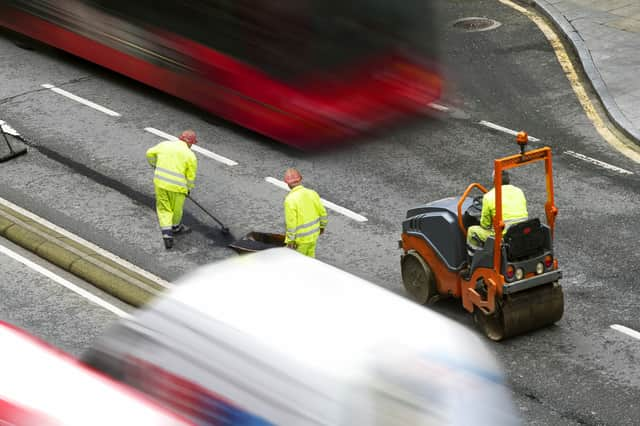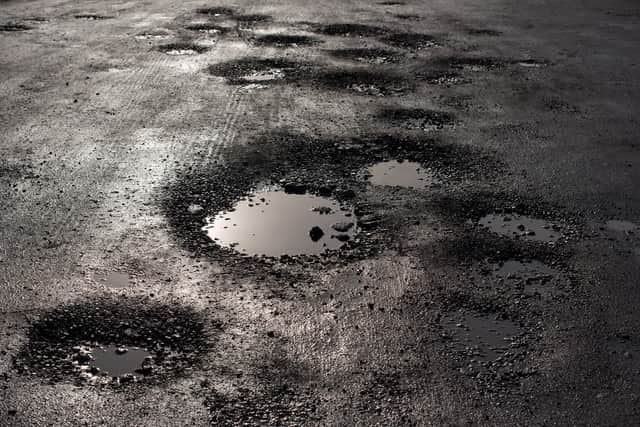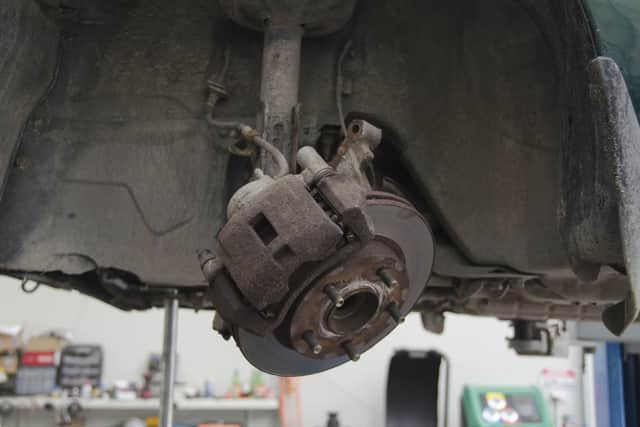UK’s roads ‘on the edge’ as bill for pothole repair backlog tops £12bn


Clearing the UK’s backlog of pothole repairs would now cost more than £12 billion, according to a new report.
The annual Annual Local Authority Road Maintenance (ALARM) from the Asphalt Industry Alliance, says that the £12bn is simply to repair existing problems and bring the country’s roads up to a standard where they can be managed cost effectively and sustainably, and doesn’t include further upgrades.
Advertisement
Hide AdAdvertisement
Hide AdThe AIA’s chair warned that the road network is “on the edge” as councils battle to stay on top of essential repairs rather than investing in long-term improvements.
The report says that despite highway maintenance budgets increasing 4%, the proportion being spent on surface repairs has fallen and engineers are faced with the choice between keeping roads open and safe or improving overall conditions.


According to the report, the backlog of repairs has risen by 23% in a single year and councils report they would have needed an additional £1bn last year just to achieve their maintenance targets, without tackling any of the backlog of repairs.
Rick Green, AIA chair, said: “Local authority highway teams have a legal responsibility to keep our roads safe, but do not have the funds to do so in a cost effective, proactive way.
Advertisement
Hide AdAdvertisement
Hide Ad“As a result, while they report some slight improvements in surface conditions, the structure of our roads continues to decline.
“Although surface repairs have a part to play in extending the life of local roads, short-term fixes, including filling potholes, is indicative of a network that is ‘on the edge’ and less efficient and sustainable when it comes to materials usage and whole-life carbon emissions.”
The report also highlighted that, on average, roads are only resurfaced once every 70 years but one in five local roads may need to be rebuilt within the next five years.
Green added: “The link between continued underinvestment and the ongoing structural decline and below par surface conditions of our local roads is clear. The country’s ambitions to encourage active travel, plus cutting waste and carbon emissions, will not be achieved with a short-term approach that can’t deliver a first-rate local road network.”
Advertisement
Hide AdAdvertisement
Hide Ad“The longer it takes for the funding to be put in place to tackle the backlog of repairs, the more it is going to cost to put it right in the future.”
A separate study by Kwik-Fit found that damage to cars caused by potholes hit an estimated £1.7bn last year as traffic returned to pre-pandemic levels.


The repair centre’s poll of drivers found that the cost of fixing damaged wheels, tyres and suspension jumped by 35% and was also nearly £500 million more than in the year to March 2020.
The average repair bill rose from £115 per driver in 2020 to £132 in 2021.
Advertisement
Hide AdAdvertisement
Hide AdRoger Griggs, communications director at Kwik Fit, said: “The total cost of potholes to the nation’s drivers is rising due to a combination of factors – worsening road surfaces, the impact of inflation on individual repair costs and car use getting back to near pre-pandemic levels.
“We all know there are huge demands on public finances at the moment, but the reality is that drivers have been consistently calling for a strategic plan to effectively bring our roads up to scratch for many years. It is not sufficient to just carry out emergency patching of the worst areas – this is always going to be a case of papering over the cracks.”
Comment Guidelines
National World encourages reader discussion on our stories. User feedback, insights and back-and-forth exchanges add a rich layer of context to reporting. Please review our Community Guidelines before commenting.
